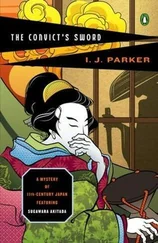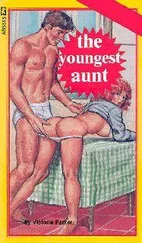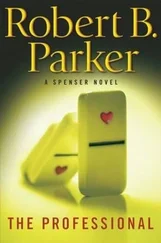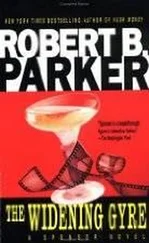T. Parker - The Triggerman Dance
Здесь есть возможность читать онлайн «T. Parker - The Triggerman Dance» весь текст электронной книги совершенно бесплатно (целиком полную версию без сокращений). В некоторых случаях можно слушать аудио, скачать через торрент в формате fb2 и присутствует краткое содержание. Жанр: Триллер, на английском языке. Описание произведения, (предисловие) а так же отзывы посетителей доступны на портале библиотеки ЛибКат.
- Название:The Triggerman Dance
- Автор:
- Жанр:
- Год:неизвестен
- ISBN:нет данных
- Рейтинг книги:5 / 5. Голосов: 1
-
Избранное:Добавить в избранное
- Отзывы:
-
Ваша оценка:
- 100
- 1
- 2
- 3
- 4
- 5
The Triggerman Dance: краткое содержание, описание и аннотация
Предлагаем к чтению аннотацию, описание, краткое содержание или предисловие (зависит от того, что написал сам автор книги «The Triggerman Dance»). Если вы не нашли необходимую информацию о книге — напишите в комментариях, мы постараемся отыскать её.
The Triggerman Dance — читать онлайн бесплатно полную книгу (весь текст) целиком
Ниже представлен текст книги, разбитый по страницам. Система сохранения места последней прочитанной страницы, позволяет с удобством читать онлайн бесплатно книгу «The Triggerman Dance», без необходимости каждый раз заново искать на чём Вы остановились. Поставьте закладку, и сможете в любой момент перейти на страницу, на которой закончили чтение.
Интервал:
Закладка:
Now, unsaddled by obligation, Holt is free to tour the enormous house. He has still not gotten used to its beauty and size its varied atmospheres and internal climates. Lately, he's been particularly drawn to the library, which faces west, is cool ii the mornings, sun-dazzled in the evenings, and oddly hushed am handsome after dark. It is on the third floor of the house and provides an overview of Liberty Ridge and the rest of Orange County to the north.
He sits on one of the leather library sofas, with a reading lamp over his shoulder and the day's newspapers set out on the coffee table before him. Holt always reads his papers at night because his mornings are hurried. He scans the Los Angeles Times, the New York Times, the Wall Street Journal, the Washington Post, and of course, the Orange County Journal.
He sips his scotch. Holt finds it increasingly difficult to read the mainstream American press. He does not believe that what he is reading is actually the pertinent news of the day. He thinks that large news organizations have an agenda to follow, and that they choose which stories to print and which to ignore, accordingly. He thinks that papers were better three decades ago, when the reporters were less righteous and egotistical, less obsessed with biographic, crowd-pleasing dirt. Still, he reads them, and they inform, amuse, and infuriate him. Here, he notes, is the dread Susan Baum again, in the Orange County Journal, bleating on about the "first annual" Gay Pride Festival last weekend in Laguna Beach: "The feeling of empowerment I sensed there was strong. There was a life-affirming scent in the air, as surely as the scent of eucalyptus. I saw the love between a lesbian couple and their two-year old, adopted son. I saw the uncloseted faces of young gay males, stepping into the straight world, without shame, for perhaps the first time. Yes, the American family ha changed, and now includes these divergent lifestyles. To deny this is to deny the truth, but to see it, is to glimpse America's future.
Holt himself had toured Laguna during the Gay Pride Festival-Liberty Operations was hired by certain individuals to provide security-and thought that the town had been transformed into one big happy gay bar, a sanctioned street-hustle under the PC banner, a mindless cluster-fuck of the naive by the depraved. God knew how many viruses were passed and caught that weekend. Baum failed to mention that. It makes Holt feel sick and angry. He wonders if the moral sickness of the Journal has somehow gotten into his own blood and turned it against him.
And here, another article of the sort that infuriates Holt, this time about the NRA: "considered by some to be a greater threat to public health than the Tobacco Institute."
One lie always leads to another, he thinks: Must send Wayne another five grand.
There is a computer station in the library. In fact, there is a computer station in every room of the house except the bathrooms and kitchen. The computers are linked to practically every other room of every other building on Liberty Ridge, connecting the people on the huge estate like nerves connect parts of the body. There is a computer in the boathouse, a computer in each of the Liberty Operations buildings, a computer in each of the citrus workers' cottages, in each of the guest flats and even a computer in the entryway to Holt Alley. All are linked.
Holt signs on, finds his own mailbox and makes the note to send Wayne LaPierre, the NRA President, $5,000 to blow as he sees fit. Holt knows that Wayne takes extreme positions at times, but believes they are the only things that will work in times of extremity. In times, for instance, when the Attorney General has publicly admitted she wished the citizenry of her country was completely disarmed.
He signs off, sighs, refills his glass from a crystal decanter on the table before him, then walks out to the observation deck off of the library's west windows. From here he can see the Pacific, his perfect orange groves, Liberty Lake, a slice of 1-5, then to the north the lighted sprawl of the suburbs-Mission Viejo into Lake Forest into Irvine into Tustin into Santa Ana and stretching beyond, like a huge and sparkling welcome mat, all the way to the door of Los Angeles itself. The breeze-cleansed October night is clear. Holt stands at the railing and trains the telescope west at the ocean. He can see a bait boat squidding under halogen lamps miles off the coast. He trains the telescope north, toward central Orange County, home-he thinks-to whores and junkies, home to thieves and liars, child molesters, rapists, killers. Home to LaRaza and Aztlan and other aberrations of the mind. Home to l kind of gun-toting racists who shot down Patrick and Carol simply because of the color of their skin. Home to the Orange County Journal, which claims that the American future is two dykes and their adopted boy.
Holt finally backs away from the telescope, letting it hang by its swivel. Even on a night like this, so clear and clean, what he sees quickly begins to shift, blur and fade. He thinks back his score of eighty-four on the sporting clays course, to the facts that last year he shot an eighty-seven the day before the quail opener, and the year before that an eighty-nine. The blood, he thinks. "Visual deterioration in majority of cases." And there's nothing anyone can do about it.
Rage on.
This is the haunted hour in Carolyn's room. Just before one a.m. Holt quietly enters. It is a large room, but dark now, illuminated only by the nurse's small reading lamp. The nurse sits at a desk far from the hospital bed, but Holt can see its chromed railing in the minor light, its thick power cable running from motor wall socket. The night nurse-Joni-looks up at Holt and as ways, smiles. She sits at the computer station, as always, scanning through CD ROMs of rock bands. Then she whispers a summary: Good, Mr. Holt.
Good, Mr. Holt. Bad, Mr. Holt. Far away, Mr. Holt. Quiet tonight, Mr. Holt.
As always, Holt nods, then goes to the bedside and sits do on a recliner that Joni has moved into position for him. Carolyn stirs when he sits down, shifts position, yawns deeply. Then Holt hands her the bed control unit and the head of the mattress moves up, motor grinding, so that Carolyn can look at her husband. She takes stock before speaking. Her hair is cut short around her face, which is plump, pink and round. Her brown eyes sparkle in the weak light. She wears a nightshirt buttoned clear up because she is, she has told her husband, embarrassed by the girth of her neck and arms.
"I love that coat," she says.
Holt looks down at his oxford shirt, his bare forearms "Picked it out just for you."
"I'm sleeping well tonight."
"I'd sure let you sleep straight through, if-"
"-I'd much rather talk to you."
"I like this time, too."
In fact, Vann Holt hates this time more than any during his day. He has privately nicknamed it "The Children's Hour," because it is the time that Carolyn slides into one of her many ruts of bullet-induced damage and wants to talk about the children. Not that she doesn't talk about them during his several visits during the day and night, but at one a.m. it is almost always the children. Whose children would not be altogether clear to the outsider, because Carolyn's encyclopedia of names is a shifting, dynamic book. But Holt has realized over the years that no matter what name his wife attaches to what person, she is referring to her own. He is long past correction, past the many months of trying to reeducate Carolyn to the fact that she has only one living child and her name is Valerie, no son. Holt hates this hour because he realizes how much of Carolyn is gone, how Patrick is fully departed, and how deep is his own collusion in his wife's dementia. He hates this hour because he has to look at what the world did to her, witness the half-paralyzed, steroid-bloated, psychotic mess of a woman they turned her into. At times he wishes she was dead, so his memory could select good moments and stanch the flow of the bad, cutting them down to a manageable trickle. It is difficult to remember the good because she remains in the here and now, actual and undeniable as a mountain, a living testimony to her own ruin. In Holt, a fury is always building.
Читать дальшеИнтервал:
Закладка:
Похожие книги на «The Triggerman Dance»
Представляем Вашему вниманию похожие книги на «The Triggerman Dance» списком для выбора. Мы отобрали схожую по названию и смыслу литературу в надежде предоставить читателям больше вариантов отыскать новые, интересные, ещё непрочитанные произведения.
Обсуждение, отзывы о книге «The Triggerman Dance» и просто собственные мнения читателей. Оставьте ваши комментарии, напишите, что Вы думаете о произведении, его смысле или главных героях. Укажите что конкретно понравилось, а что нет, и почему Вы так считаете.












